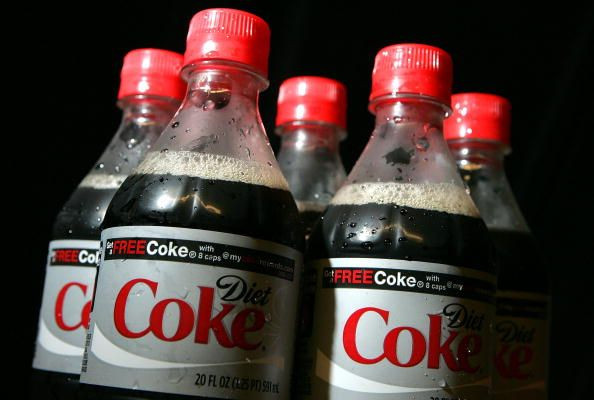Diet Drinks Threaten Women With Increased Risk Of Early Death, Heart Attacks

Women over the age of 50 should steer clear of diet sodas and any other beverage that claim “diet” on their labels as these present an increased risk for heart disease. According to a study by the American Stroke Association and the American Heart Association, it could even be riskier for those with no history of diabetes and heart illness, as well as those who are of African-American descent or are obese.
Effect of Diet Drinks
The research looked into the records of 81,714 females from the Women’s Health Initiative Observational Study, where 64.1 percent consumed artificially sweetened beverages (ASB) zero to once per week and 5.1 percent consumed one to two ASBs per day. The results showed that the 5.1 percent were more likely to develop coronary heart disease and end up with early death. Those with no prior history of diabetes and cardiovascular problems also exhibited a two-fold increased risk for ischemic stroke.
In an interview with CBS Local, American Academy of Neurology President Dr. Ralph Sacco said that while the results do not show causation, it is an important finding that confirms the relationship between diet and artificially flavored drinks and vascular problems. That said, important questions need to be explored through further study, such as what artificial sweeteners do to the body, particularly on metabolic processes and gut health.
Are Diet Sodas Nutritious?
The short answer: no, they are not. While diet drinks have low to zero calories and sugars, which is great news for weight watchers, that does not mean that’s it a healthy drink. Recipes differ depending on the brand but they generally are low in vitamins and minerals. They also contain artificial flavors whose health benefits remain largely under-studied, as well as preservatives. That’s not to mention the amount of caffeine, acids and colors in the ingredients. Acids, for one, have been linked to faster tooth enamel breakdown.
In addition, the effects of diet drinks on weight loss are not conclusive. Some studies found that artificial sugars associated with a greater risk for metabolic problems and obesity. Others found that they actually stimulate the hunger hormones, leading one to be more prone to cravings. Diet soda and weight loss being directly related is a dangerous claim because there are not enough studies to support it. The safest bet really is to just go with water and natural drinks. Be sure to check the label and the ingredients before consuming anything.
© Copyright IBTimes 2025. All rights reserved.




















